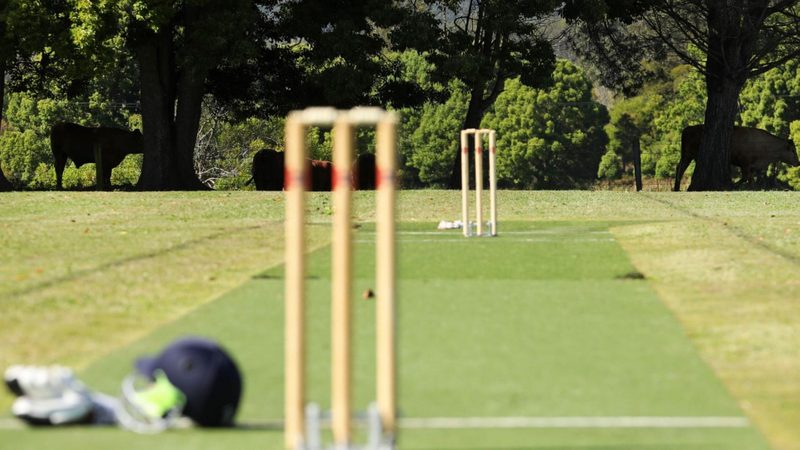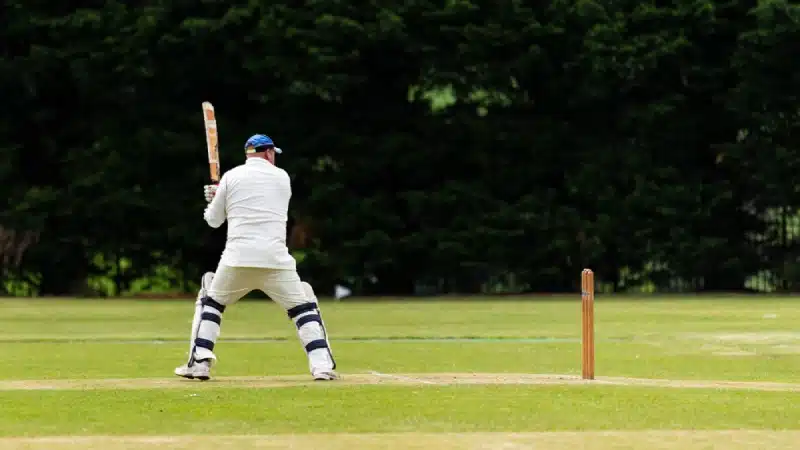
Cricket is an outdoor sport and situations might arise where playing a match could prove dangerous for various reasons. In such situations, a cricket match must be ‘suspended’ by umpires until conditions improve.
From unexpected events to medical issues, weather, or other external factors, cricket matches can be suspended without warning.
Allowing the game to continue when weather conditions or other factors are not ideal would give one team an advantage over the other or even put the safety of the players on the line, hence suspending the game is the safest and sometimes smartest option to go with.
The game can always, of course, resume at the same point when the situation, whatever it maybe is under. This rule of suspension is used to ensure a fair game by avoiding a potential advantage to one of the teams, all of which must be taken into account while ensuring the safety of all players involved.
Here, we take a closer look at what is suspended in cricket?
What is suspended in cricket?
Reasons why a cricket match could get suspended
Heavy rain, strong winds, lightning, or extreme heat can cause a match to be suspended as inclement weather can create unsafe playing conditions.
Poor light conditions can also force a match to be suspended, as the players must be able to see the ball in order to play safely and properly.
Additionally, dangerous pitch conditions can cause a match to be suspended. If the pitch or outfield is too slippery, uneven, or otherwise hazardous, the match must be stopped until the pitch is safe for play.
Sometimes, if either team does not have enough players to field a team, the match may be suspended until the team can obtain the necessary number of players.
Cricket matches can also be suspended for a number of unusual reasons such as if an animal like a snake or a bird enters the field.
Not only matches but even tournaments can also be suspended. The Covid-19 pandemic had a significant impact on the sporting world with many tournaments being suspended in order to protect the players, fans, and the economy from the virus.
In addition to the safety concerns, there were also logistical issues to consider. With travel restrictions in place, it became difficult for teams to travel to tournaments and compete. Furthermore, with stadiums closed, it was difficult to host tournaments.
In conclusion, cricket matches can be suspended due to various strange factors. From unexpected events to medical issues, cricket matches can be suspended without warning.
Player suspension in cricket
Cricket is known as a gentleman’s game. It involves skill and strategy and it is necessary for players to adhere to a certain code of conduct. When players breach the code of conduct, they can be suspended for a specific duration of games, months, and even years depending on the type and nature of offence.
The most common reasons for player suspensions in cricket include poor sportsmanship, involvement in match-fixing, or other forms of corruption, and illegal use of drugs or performance-enhancing substances.
Poor sportsmanship can include actions such as arguing with umpires or opposing players or deliberately trying to disrupt the game. These actions can often lead to suspension, as they are considered unsportsmanlike and creates an atmosphere of hostility or intimidation.
Match-fixing and other forms of corruption involve players taking payment or gifts in exchange for influencing the outcome of a match. In order to protect the integrity of the game, players involved in match-fixing or corruption may be suspended or even entirely banned from the sport altogether.
Overall, players may be suspended from cricket for a variety of reasons. Such suspensions are designed to protect the integrity of the game, ensure fair play, and protect the health and safety of players.
Photo credit: Alamy




















